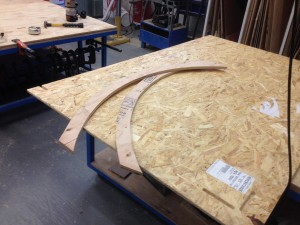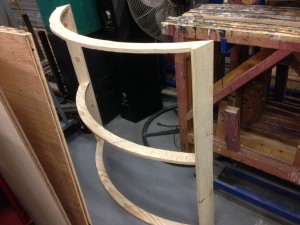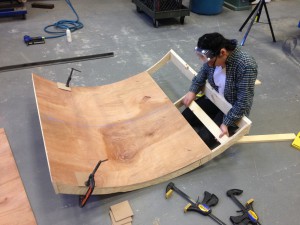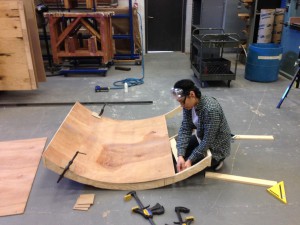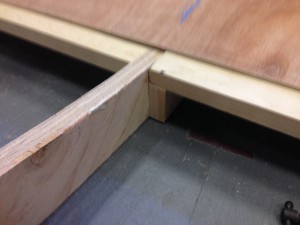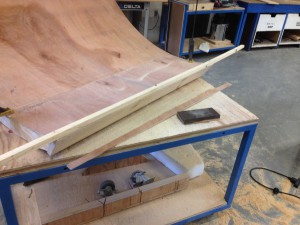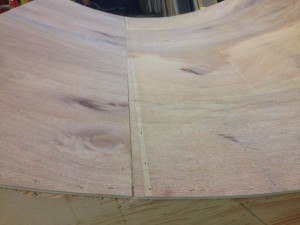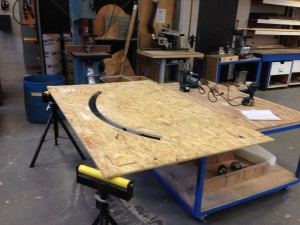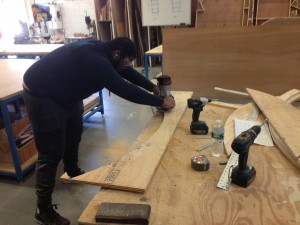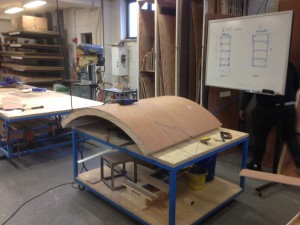We built 2 frames at 4 feet tall with 3 foot radius to compare and contrast construction methods.
The convex flat was ran a continuous piece of lauan across the arch length. While, the concave flat used the 4 foot width of the lauan and needed a toggle seam to complete the arch.
We observed that 1/4″ lauan is more flexible perpendicular to the surface grain because the internal structural ply, while it was harder to manipulate the ply to curve with the surface grain, it was not impossible. Lauan can be purchased with different directions of grain depending on the lumber order.
- shaping toggles and rails to have styles line up perpendicular to face makes it easier to install styles without mitering them to be flush to face.
- Since there is no access to the edges of center seam catcher toggles, they need to be stapled in to nailing blocks.
- Not using top and bottom rails and just using toggles means fewer custom pieces for the flats and gets more use out of the existing templates.
- Cutting the lauan with an overhang and routing flush is better than measuring the approximate arch length and makes the edges look uniform.
- Joint compound helps mask seams and staples for a smooth surface.
I have concluded that facing curved flat with sheet laid across the arch is easier than installing seam catchers.
Pictures linked here:
rails and framing toggles.
On-face 1 by seam catcher and nailing block.
Trim routed edge and guild. Small gap in seam.
jigsawed template and routed toggles. Skinned with continuous lauan.

